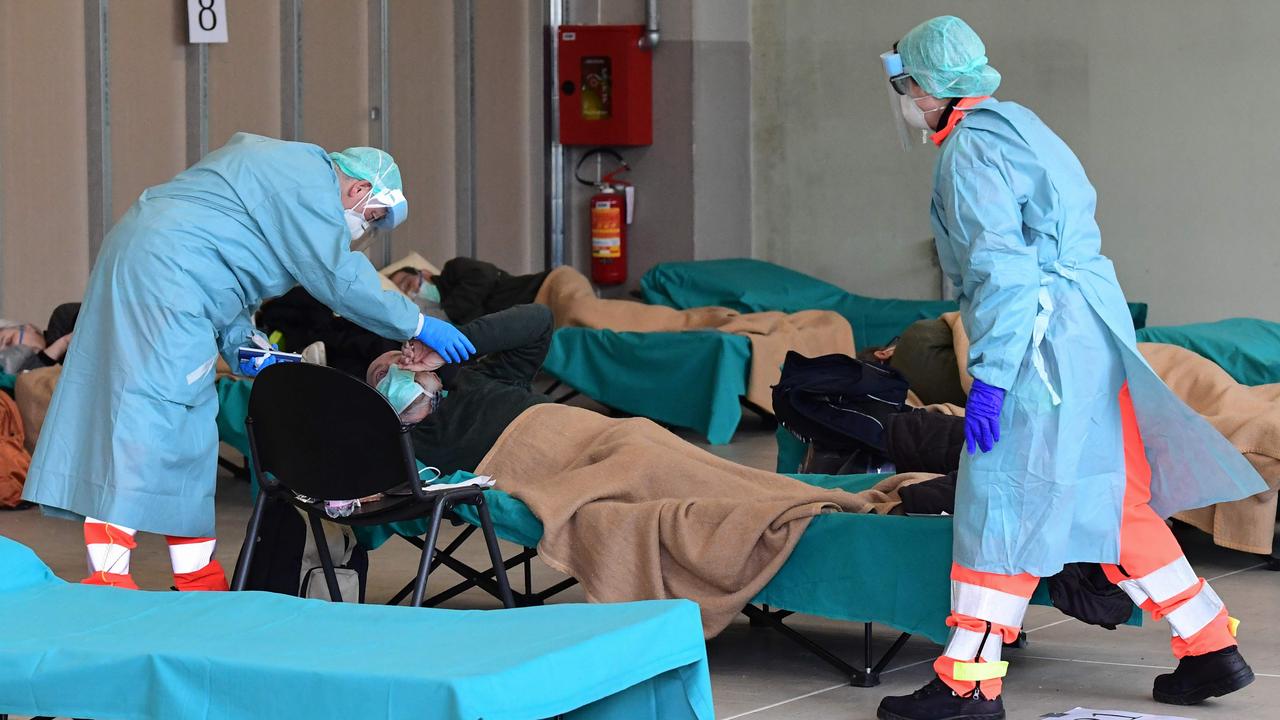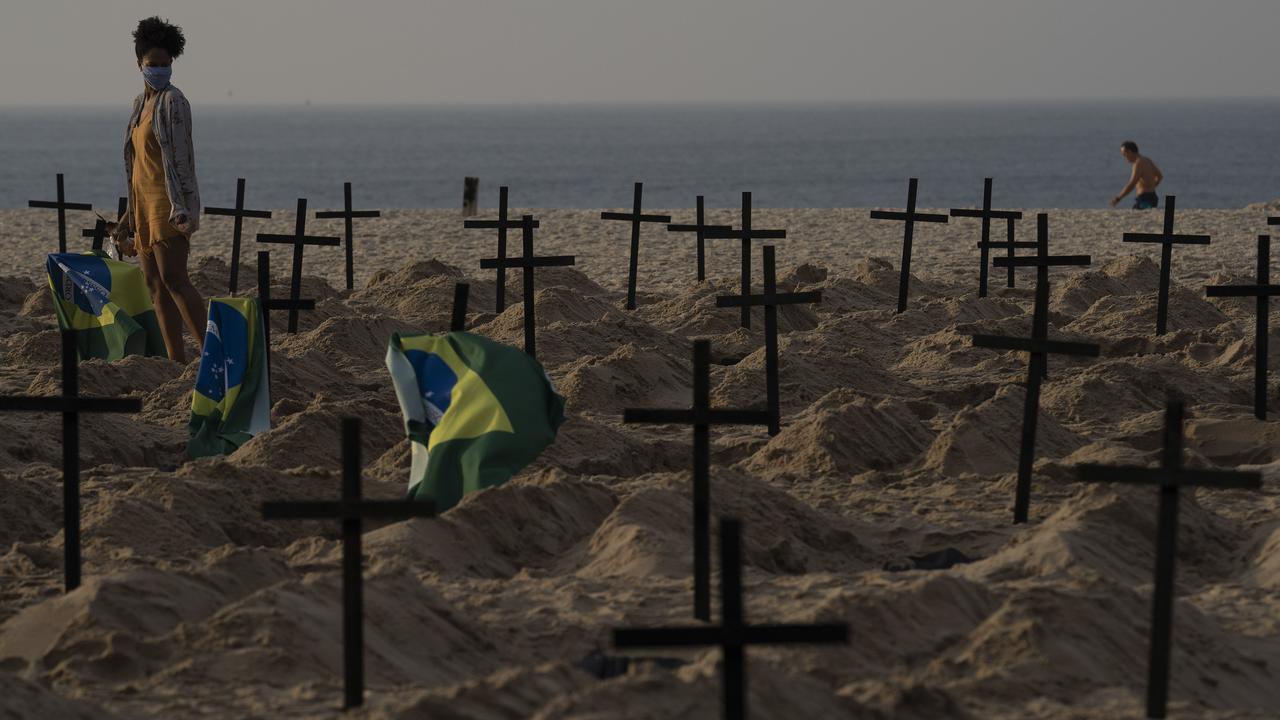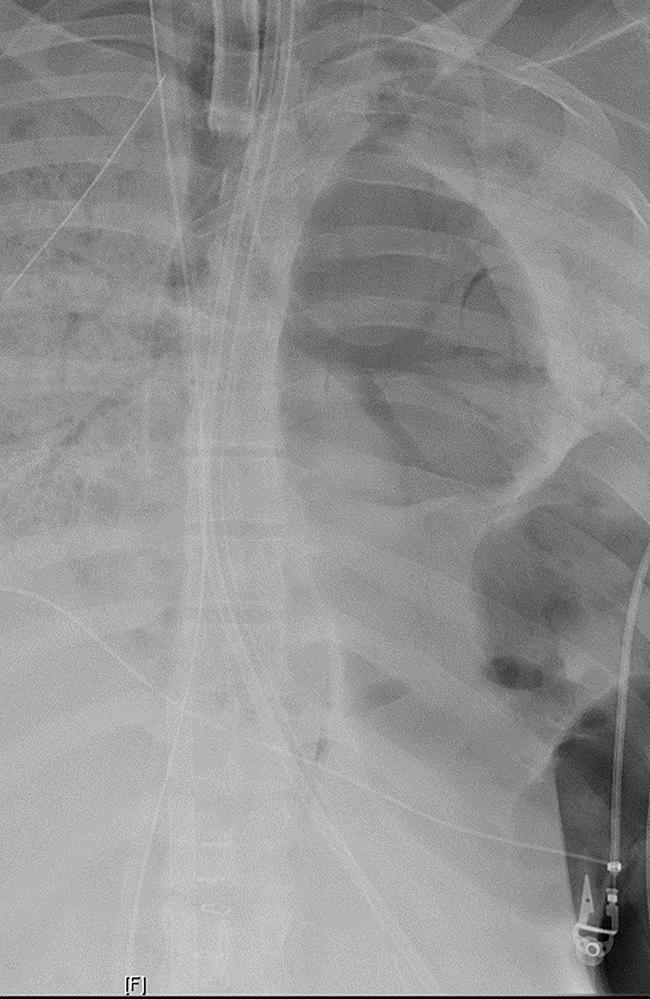Coronavirus Sweden: Highest number of daily COVID-19 infections recorded
Sweden suffered its worst day for new virus cases, but officials say it is due to a long-delayed surge in testing.

For some countries, the first – and hopefully only – wave of the COVID-19 outbreak has peaked and passed.
But the worst is far from over – 146,000 new cases of coronavirus have been recorded around the world in the last 24 hours, the worst day for new infections since the global virus outbreak began.
And in Sweden, where tactics to contain the pandemic have come under close scrutiny, a record 1474 new cases of coronavirus have been recorded, the nation’s highest daily tally of infections since the outbreak began.
The figure takes the country’s total number of infections to 48,300 – though health officials at the Public Health Agency have said the spike is simply due to a long-delayed surge in testing, and the number of deaths was slowing.
The rise “is a direct consequence of increasing testing in the regions and catching cases with mild symptoms”, head of microbiology at the Agency, Karin Tegmark-Wisell, told reporters.
“It has been a slow upturn, but now it seems that the effect of increased testing is becoming clear.”
RELATED: Follow the latest coronavirus updates
RELATED: ‘Pushed to the limit': Region in crisis

Facing growing criticism from the opposition over a sluggish expansion of testing, Sweden’s government pledged a further $927 million to increase testing and widen contact tracing across the country.
Deaths in Sweden caused by the disease have gradually declined from peak levels in mid-April of about 100 per day, with Ms Tegmark-Wisell saying the seven-day rolling average had hit 37 per day at the beginning of June.
Health Minister Lena Hallengren told a separate briefing that the number of people infected who were being treated in intensive care was decreasing “at a slow but steady rate”.
The nation’s chief epidemiologist acknowledged last week that the government could have done more to prevent a widespread COVID-19 outbreak, with the country eschewing a lockdown in favour of mainly voluntary measures.
Professor of infectious medicine at Sweden’s Uppsala University, Born Olsen, echoed the sentiment, telling The Washington Post“we understood absolutely nothing”.
DEATHS SURGE IN NORTHERN ITALY
Italy, where coronavirus fatalities are the fourth-highest in the world, has recorded 53 new deaths and 379 new infections.
Most of the new cases are in the northern region of Lombardy, where the virus outbreak first exploded in Europe.
The update provided by the Health Ministry raised the nation’s overall total of known coronavirus infections to 236,142 and the overall known death toll to 34,167.
Following the lifting of restrictions on daily activities in recent weeks, authorities said the country likely still has far more cases but that they went undetected since many with mild symptoms haven’t been tested for COVID-19.
The rise in deaths comes as dozens of families of coronavirus victims have reportedly filed legal complaints against local politicians and health officials, claiming their relatives did not receive adequate assistance before they died.
RELATED: New virus cases hit record high

COUNTRY’S CHILLING VIRUS MOVE
Volunteers have dug 100 graves on Rio de Janeiro’s iconic Copacabana Beach as a symbolic reminder of the thousands of Brazilians who have died from COVID-19.
The statement was also used to denounce what they called the “incompetence” of public authorities handling the pandemic.
Ten rows of holes were dug in the sand in front of the iconic Copacabana Palace hotel, and dotted with black crosses decorated with small Brazilian flags.
“The objective is to protest against the succession of errors made by the federal government in handling the humanitarian crisis that Brazil is suffering,” the NGO Rio de Paz, established to combat violence in the city, said on Twitter.
The visual effect is reminiscent of images from locations around the world where the coronavirus has hastened the digging of fresh graves – particularly in the Amazonian city of Manaus in Brazil’s north.
RELATED: Nation hides virus data as death toll spikes


“Here we have reproduced, in this postcard Rio setting, what we see in our cemeteries,” president of Rio de Paz, Antonio Carlos Costa, told AFP.
“We are here to demand a change of attitude from the President of the republic, who must understand that our nation is facing the most difficult moment in its history,” he said.
“This pandemic has exacerbated social injustices and the incompetence of public powers.”
Far-right President Jair Bolsonaro has repeatedly downplayed the pandemic’s scale, calling COVID-19 “a flu”.
While Bolsonaro advocates for the resumption of economic activity, the virus continues to spread in the country, where almost 40,000 people have died and more than 770,000 have been infected, out of a population of over 210 million.
INCREDIBLE OPERATION SAVES VIRUS VICTIM
A 20-year-old woman whose lungs were totally destroyed by the coronavirus has been thrown a lifeline thanks to an incredible 10-hour operation.
Inflammation from the disease had left both the Chicago woman’s lungs “completely plastered to tissue around them, the heart, the chest wall and diaphragm”, the New York Timesreported.
However, surgeons managed to transplant both of the decimated lungs over an arduous 10-hour procedure, in the first known lung transplant in the United States for COVID-19.
While she’s now smiling and FaceTiming her family from bed, chief of thoracic surgery and surgical director of the lung transplant program at Northwestern Medicine, Dr Ankit Bharat, said she still has long way to go.
RELATED: US predicted to have 200,000 virus deaths

He also added that while the success of the surgery offered hope to others suffering from the virus, lung transplants can only help a select range of people.
“We are talking about patients who are relatively young, very functional, with minimal to no comorbid conditions, with permanent lung damage who can’t get off the ventilator,” Dr Bharat said.
For those patients, he said, the news of a successful transplant “absolutely could start something”.
– With wires




